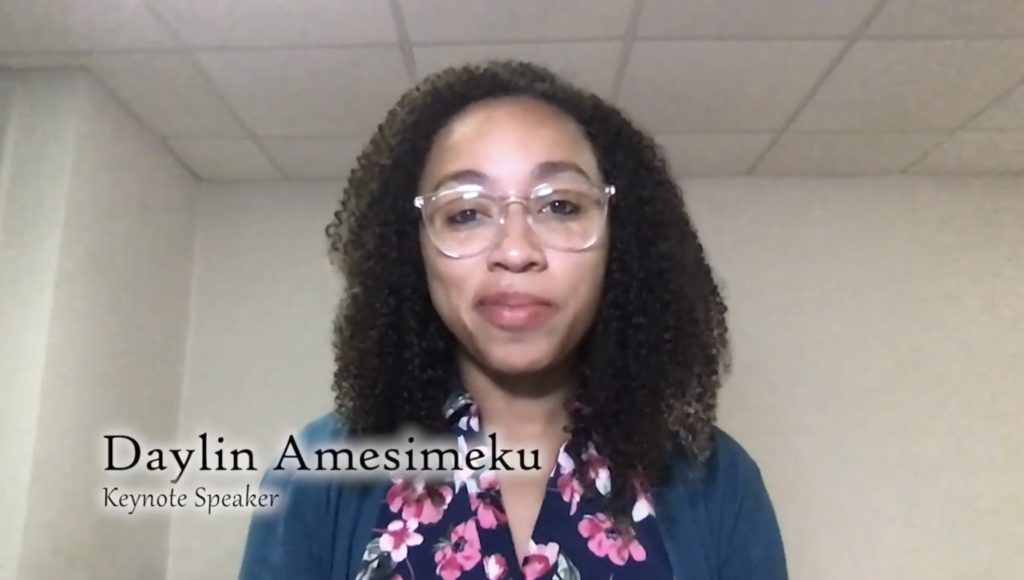
BYU’s Multicultural Student Services and Black Student Union held a Martin Luther King Jr. memorial on Jan. 21 focused on “leaning in and listening.”
The event was streamed on YouTube in lieu of an in-person Walk of Life ceremony. The keynote speaker was Daylin Amesimeku, BYU Black Alumni Society chair-elect. The memorial also celebrated Martin Luther King Jr. Day student essay contest winners. Kaila Douglass came in first, with Grace Soelberg coming in second.
Amesimeku emphasized how important it is for individuals to love and listen to one another as well as understand others’ experiences.
One example of listening to others was an interaction between Colin Kaepernick and Nate Boyer. Former Black Student Union president Déborah Aléxis had recounted this story during a conference commemorating the 40th anniversary of Official Declaration 2, which gave Black male members of The Church of Jesus Christ of Latter-day Saints the opportunity to receive the priesthood.
Quoting Aléxis, Amesimeku explained how Kaepernick had taken a seat during the national anthem of a football game. Boyer, who used to be a U.S. Army Green Beret, was initially upset at this action. However, he chose to “lean in, to strain his neck, to listen.”
Boyer came to the understanding that he and Kaepernick had very different life experiences from one another and realized what Kaepernick was trying to do through his actions. After Boyer penned an open letter to Kaepernick suggesting he take a knee instead of sitting, Kaepernick also listened.
Amesimeku related that scenario to BYU students who are dealing with the many strains that being a student of color adds to the collegiate experience.
She said many students of color are navigating complexities while also striving to achieve academic success at BYU. “So to students who don’t have to navigate these complexities, are you leaning in and listening and straining your neck?”
Another example of leaning in and listening came from Amesimeku’s personal life. At a youth conference many years ago another young girl had come up to her asking if she was biracial. The girl asking was biracial herself.
Having never before heard the term, Amesimeku said she felt confused and disregarded the comment. She now remembers that experience with regret and wishes she had paid more attention and listened, as the girl was looking to make a connection with a biracial friend.
Amesimeku said she uses the memory as a learning lesson for her life, leaning in and listening a little more closely to understand the experiences of others.
“During difficult times, there’s often a call for unity. I believe this unity must be founded on the principles of accountability, understanding and empathy. If we simply come together without challenging our own beliefs and biases and preconceived notions, then we are using unity simply as a placeholder without any true desire for change,” she said.




